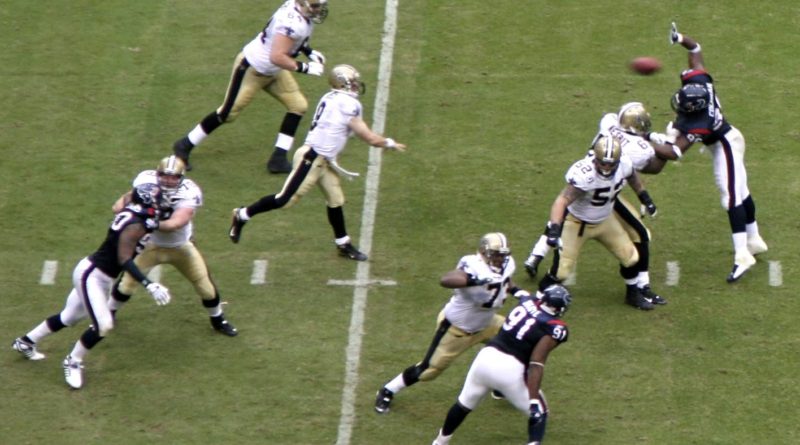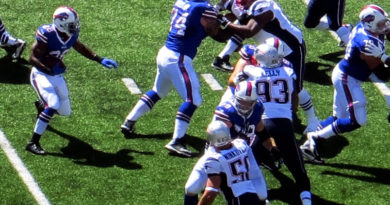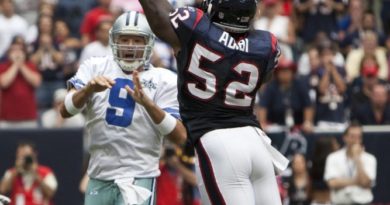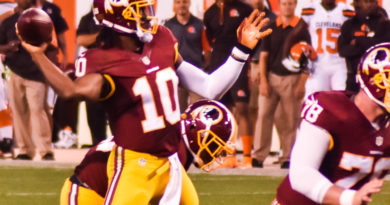Drew Brees is Better on the Road than You Think
With Drew Brees at quarterback, the New Orleans Saints have been one of the NFL’s most successful organizations. Since joining the team in 2006, Brees has a record of 80-47, which works out to an impressive average of 10 wins per season. Following the 2009 season, he won a Super Bowl MVP with a victory over Peyton Manning’s Indianapolis Colts. Twice (2008 and 2011), Brees was named the AP NFL Offensive Player of the Year. He holds dozens of NFL records; perhaps the most impressive is his streak of throwing at least one touchdown pass in 54 straight games. Brees even held the record for most passing yards in a season, until it was broken this past year by Manning.
Ok, so the guy is good. Really good, even. Yet, he seems to carry a “yeah, but” label; namely, a tendency for his performance to decline on the road.
It is true that Brees has much better statistics while playing in the comfortable environment of the Superdome. He has no wind to contend with, no snow and of course, no hostile crowd. But are his home/road splits that much worse than other NFL quarterbacks?
As a member of the Saints, Brees is 44-20 (69% winning percentage) at home and 36-27 (57%) on the road. Perhaps that seems like a fairly large differential until his peers’ numbers are considered. Ben Roethlisberger, for example, has a similar winning percentage on the road (58%) during his career, but has won 75% of his home games. In fact, of the seven active NFL quarterbacks with the most career starts, Brees has the third-lowest home/road winning percentage differential.
| Quarterback | Home Win % | Road Win % | Differential |
| M. Hasselbeck | 64.8% | 41.5% | 23.3% |
| T. Brady | 85.6% | 67.7% | 17.9% |
| B. Roethlisberger | 75.0% | 57.7% | 17.3% |
| C. Palmer | 54.4% | 38.6% | 15.8% |
| D. Brees | 68.8% | 57.1% | 11.7% |
| P. Manning | 75.0% | 64.2% | 10.8% |
| E. Manning | 57.9% | 53.9% | 4.0% |
Logic would dictate that a passer’s performance indoors would be significantly boosted by the lack of wind, among other things. This would lead to a reasonable explanation for any excessive home/road win percentage splits. However, of the players listed above who have a higher differential than Brees, none of them has ever played for a team that plays all of its games indoors. It is difficult to recall any conversations in the media regarding the road woes of Hasselbeck or Palmer. Despite playing his home games in perfect indoor conditions, though, it is Brees who somehow has the stigma of not playing so well on the road.
The Atlanta Falcons, Detroit Lions, Indianapolis Colts, Minnesota Vikings, New Orleans Saints and St. Louis Rams comprise the six teams that have played all of their home games indoors since Brees joined the Saints in 2006. During that time, the team has had a higher percentage of its wins on the road than any of the other full-time indoor teams. In fact, their percentage is higher than it has been for the average outdoor team.
| Team | Road Wins/Total Wins |
| New Orleans | 45.0% |
| St. Louis | 44.0% |
| Outdoor Teams | 43.6% |
| Indianapolis* | 43.5% |
| Atlanta | 40.9% |
| Detroit | 38.5% |
| Minnesota | 35.6% |
* Indianapolis had a road wins/total wins percentage of 45.9% with Peyton Manning at QB during that time.
It is hard to argue that a franchise getting a higher percentage of its wins on the road than any other dome team (as well as the average outdoor team) is struggling away from home.
Part of the criticism aimed at Brees and the Saints stems from their performances on the road during the postseason over the years. With Brees in New Orleans, the Saints are 5-3 in the playoffs; 4-0 at home, 1-0 at a neutral site (Super Bowl XLIV) and 0-3 on the road. On the surface, it would appear that there is some merit to the criticism. However, the following should be noted, with respect to the performance of Brees during the Saints’ three road playoff losses:
| Year | Points | Yards | Comp | TD | Int | QB Rtg | DRank |
| 2006 | 14 | 354 | 55 | 2 | 1 | 83 | 3 |
| 2010 | 36 | 404 | 65% | 2 | 0 | 95 | 25 |
| 2011 | 32 | 462 | 63% | 4 | 2 | 94 | 2 |
In the worst playoff loss of his Saints’ career, Brees fell to the Chicago Bears in 2006. The 14 points scored that day certainly are not an impressive total, but the Bears’ defensive unit ranked third in the entire league in points allowed that season. Brees still managed to throw for 354 yards and a pair of touchdowns. Even if that game is to be considered subpar for Brees and his team’s offense, the other two games surely were strong efforts.
In each of the other two road losses, to the Seattle Seahawks in 2010 and the San Francisco 49ers in 2011, the margin of defeat was less than a touchdown. The Saints averaged 34 points in those two games as Brees threw for 866 yards, six touchdowns and two interceptions. His QB rating was in the mid-90s in each of those two losses, which included a game against a 49ers defense that surrendered the second-fewest points during the regular season.
It is always difficult to win on the road during the NFL playoffs. In two of the three road losses above, Brees gave his team an opportunity to win. In fact, in the SF contest, the Saints held a four-point lead before losing on a touchdown with only 14 seconds remaining in the game.
During his eight seasons in New Orleans, Drew Brees has had only two seasons in which his road quarterback rating was below 90 (80 in 2008 and 85 in 2013). Twice, his road quarterback rating exceeded 100 (107 in 2006 and 101 in 2011). Any quarterback would have better statistics playing indoors than outdoors over time (Peyton Manning, who played home games in a dome for 13 of his 15 seasons, has a career quarterback rating six points lower on the road than at home). Brees, despite a natural drop-off in performance outside of a dome, has guided the Saints to win games on the road at a better relative rate than any other dome team, as well as most outdoor teams.
As the NFL enters the postseason, the Saints will open the playoffs on the road in Philadelphia. A lot is being made of the team’s road woes, particularly this season. New Orleans was a mediocre 3-5 on the road in 2013 and scored 14 points fewer away from the Superdome than in it.
Two of the five road losses this year surely were shockers; at the New York Jets and at the St. Louis Rams. Despite missing out on the playoffs, those two teams still managed to combine for a respectable 11-5 record at home. Those are still games the Saints should have won, though, based on talent. The other three road losses for the Saints in 2013 were at the New England Patriots (by three points on a touchdown with 10 seconds remaining), at the Seattle Seahawks and at the Carolina Panthers. Those three teams combined for a ridiculously impressive 22-2 record at home this year. Very few NFL teams would have won any of those three games on the road.
All in all, save for a couple of “bad” losses this past season to teams with surprisingly solid home records, Drew Brees and the New Orleans Saints have performed quite strongly on the road over the years. It is just hard to notice this based on the unfair labels this team and its quarterback have received.
(photo by Ed Schipul)



